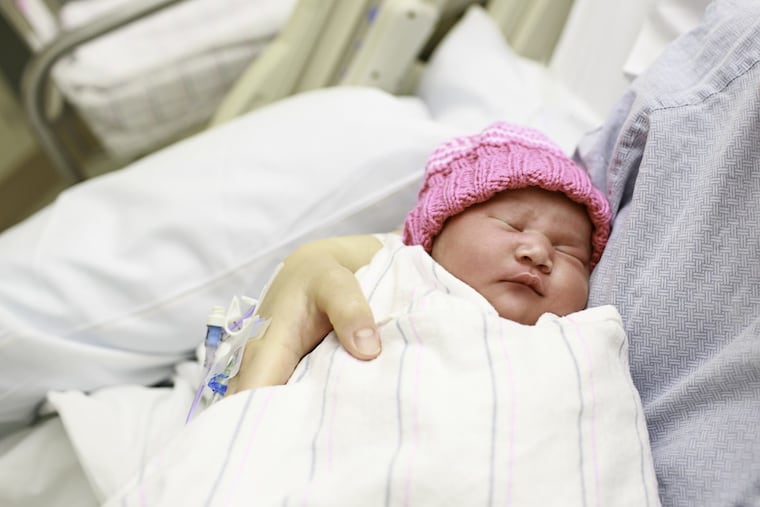Philly first city to track instances of severe childbirth complications in real time
Philadelphia's cases of severe complications in childbirth are growing faster than the national increase.

Philadelphia is debuting a novel data-gathering initiative in an attempt to reduce the number of people who experience severe complications during or after childbirth.
The new initiative, approved by the city’s Board of Health in January, requires hospitals to share detailed information about pregnancy, delivery, and the parent’s health for patients who experience serious childbirth complications.
The Philadelphia Department of Public Health says it will be the first American city to take this approach, and should begin gathering from all hospitals with labor and delivery later this year.
Maternal mortality and reducing deaths during or after birth has been a major focus of hospitals, public health agencies and lawmakers.
But for every maternal death in Philadelphia, there are between 70 and 80 people who experience serious childbirth complications. Problems with anesthesia, heart conditions, abnormal blood clotting, and kidney failure can arise during childbirth. Other complications, like cardiomyopathy, pulmonary embolisms, and postpartum depression, might emerge after a parent and child go home.
According to Philadelphia’s most current data — which is almost a decade old — maternal mortality rose 28% here between 2011 and 2014, outpacing the national rise in maternal morbidity.
Black, non-Hispanic birthing parents are twice as likely to experience maternal morbidity compared to white parents, city health officials said.
Philadelphia’s stale data is one of the problems the new data gathering program is meant to address, health officials said.
The surveillance program will track birthing patients who receive blood transfusions, intensive care admissions, have lengthy hospitalizations, or are readmitted within 30 days of discharge. Seeing real-time data from hospitals would allow a more nimble public health response, officials said.
» READ MORE: Philadelphia to pilot a guaranteed income program to reduce rates of infant mortality
Unexpected complications during birth can cause long term health problems for parents, and can harm the baby too. Infant mortality, premature birth, and natal intensive care stays are all associated with severe maternal morbidity, city health officials said.
The maternal morbidity surveillance program will be an important source of evidence to bolster the case for policy changes that could reduce cases of maternal morbidity and death, said Aasta Mehta, a health department physician running the surveillance program.
“We would be able to bring some numbers to a lot of these concepts,” she said.